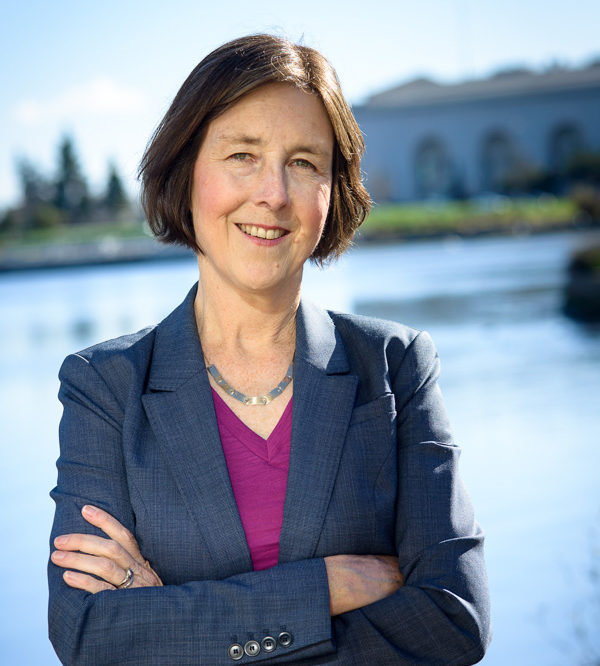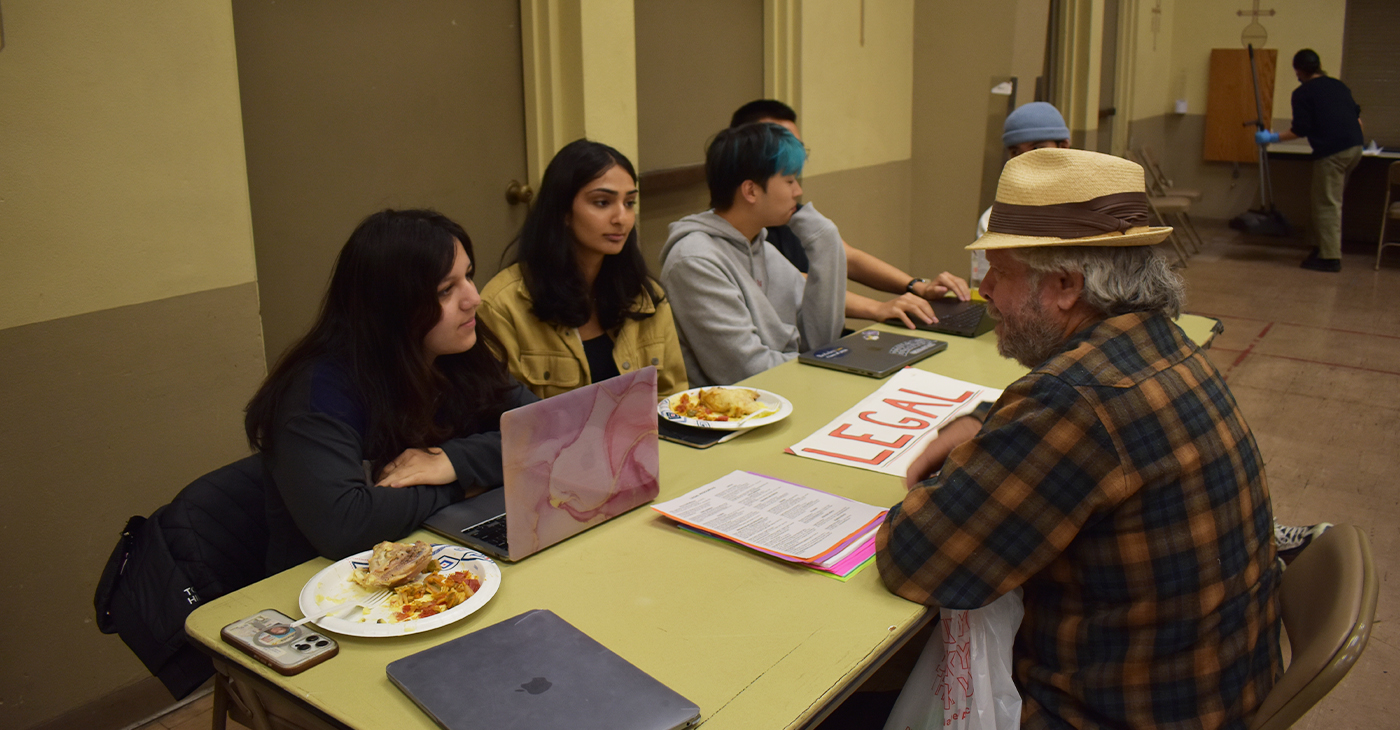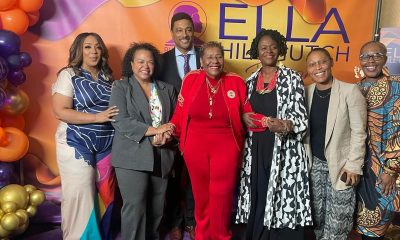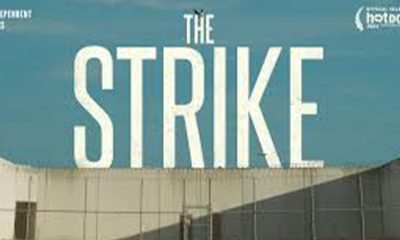Bay Area
State Sen. Nancy Skinner Alerts Voters on COVID-19 Relief for Renters
As chair of the Senate Budget and Fiscal Review Committee, I’m proud to report that the state Legislature, with assistance from the federal government, has now authorized financial relief for both tenants and landlords. Eligible renters and landlords in Contra Costa County and most of Alameda County can apply now for that assistance and will be able to soon if they live or own property in Oakland.

District 9 State Senator Nancy Skinner wrote a letter to constituents on the relief now available for rental payments to help landlords and tenants. The text of the letter is below.
Dear Constituent,
The economic impacts of COVID-19 have made it difficult for millions of Californians to afford their rent payments. In fact, without local, state, and federal action barring evictions, untold numbers of Californians may have faced eviction.
As chair of the Senate Budget and Fiscal Review Committee, I’m proud to report that the state Legislature, with assistance from the federal government, has now authorized financial relief for both tenants and landlords. Eligible renters and landlords in Contra Costa County and most of Alameda County can apply now for that assistance and will be able to soon if they live or own property in Oakland.
Senate Bill 91, approved earlier this year by the Legislature and Gov. Gavin Newsom, greenlights the distribution of $2.6 billion in federal funding for rental assistance to ensure that low-income California tenants who were unable to pay all or part of their rent over the past year may have their entire rental debt erased, and their landlords will be able to receive 80% of what is owed in back rent.
Here is how tenants and landlords impacted by the pandemic can apply for relief in Contra Costa and Alameda counties and in the city of Oakland:
Alameda County
- Alameda County has launched its own renter-landlord relief program, Alameda County Housing Secure. Alameda County’s program mirrors the Housing is Key program in how it works, although it prioritizes very low-income residents and small landlords who depend heavily on their income from a rental property.
- Tenants and landlords in Alameda County are able to apply for relief using Alameda County Housing Secure – NOTE: renters who live and landlords who own property in Oakland must apply to the City of Oakland’s program (see description below for application process).
Contra Costa County
Contra Costa is using Housing Is Key, the state-run program for tenant-landlord relief.
Here are the key components of Housing Is Key:
- Landlords owed back rent because their COVID-impacted tenants were unable to pay full rent since last year must fill out an application on the Housing Is Key website.
- Renters who were unable to pay their full rent since last year must also apply on Housing Is Key.
- Once both the landlord and tenant have applied and met the criteria under the Housing Is Key program, landlords will be paid by the state 80% of the back rent they’re owed from March 2020 through April 2021 (based on the availability of funding).
- Eligible renters will have the rental debt they accumulated from March 2020 to April 2021 erased and be protected from eviction through June 30, 2021, as long as the renter pays at least 25% of their rent each month in April, May, and June 2021.
- Depending on the availability of funding, renters who are accepted into the program will be reimbursed for up to 25% of their rent for the months of April, May, and June.
- Funding under SB 91 will be prioritized for low-income tenants, based on their 2020 earnings or their monthly household income at the time of the application. All renters who have been unable to pay some or all of their rent in the past year are encouraged to apply.
- Renters of landlords who decline to participate in the program can still be eligible for the rental assistance dating back to April of last year. To obtain this assistance, the renter must submit their application to Housing Is Key website and must pay at least 25% of their monthly rent for April 2020 through June 2021 to be protected from eviction through June 30.
- Landlords may not apply a tenant’s security deposit to cover the rental debt, cannot charge late fees, and may not take legal action to seek recovery of COVID-related rental debt until July 1.
Oakland
- Starting soon, Oakland tenants and landlords who own property in Oakland will also be able to apply through the state program Housing Is Key, as laid out above.
- Oakland tenants whose landlords do not apply to Housing is Key, may still receive rental assistance through the City of Oakland’s own program Keep Oakland Housed. Applications under Keep Oakland Housed rental assistance funding are scheduled to be available beginning April 1. Keep Oakland Housed is a rental assistance program designed for very low-income tenants and is not limited to the rules detailed in the description of Housing is Key listed above.
As a reminder, here in the East Bay, all tenants who have been unable to pay their full rent due to the pandemic, regardless of whether they meet the income eligibility requirement for the rental assistance described above, are protected from eviction thanks to bans enacted by both Alameda and Contra Costa counties.
Alameda County’s ban on evictions impacted by the pandemic remains in effect until 60 days after the county’s health emergency is lifted. That health emergency is in effect indefinitely. Contra Costa County’s eviction ban extends until June 30. NOTE: the eviction ban only covers inability to pay due to the pandemic and not other actions that would otherwise qualify for a just cause eviction.
Also, for homeowners, Biden recently announced the extension of the nationwide ban on foreclosures through June 30. Biden’s order also extended the enrollment window for mortgage payment forbearance until June 30.
I hope you find this information helpful. It’s an honor to serve you in the state Senate.
Sincerely,
Nancy Skinner
State Senator, District 9
Activism
Oakland Post: Week of December 18 – 24, 2024
The printed Weekly Edition of the Oakland Post: Week of December 18 – 24, 2024

To enlarge your view of this issue, use the slider, magnifying glass icon or full page icon in the lower right corner of the browser window. ![]()
Activism
City of Oakland Celebrates Reopening of Main Library
“Libraries are such critical facilities for all Oaklanders, whether it’s children coming to story-time, adults reading the newspapers or borrowing the latest novels, and people engaging with a range of services and programs that the library hosts,” said Council President and District 2 Councilmember Nikki Fortunato Bas. “Such library services and programs are only possible when the facility’s electricity, heating, roof, and lighting are fixed and running efficiently. I’m proud to join this re-opening of our Main Public Library.”

The branch had been closed since May for critical infrastructure upgrades
Special to the Post
The City of Oakland leadership and community partners gathered to celebrate the reopening of the Main Library after completion of critical infrastructure upgrades to enhance the library’s facilities and provide a better experience for patrons.
Renovations include new roof installation, skylight repair, critical electrical system upgrades, new boiler control system installation, auditorium heating and cooling system installation, and improvements to lighting, flooring and ceilings throughout the building.
“This is truly something to celebrate, the reopening of our wonderful Main Library! I congratulate the staff and our partners for this important project to make the Main Library a more comfortable place for everyone for years to come, said Oakland Mayor Sheng Thao. “Thank you to Oakland voters and the California State Library for making these crucial improvements possible.”
“Libraries are such critical facilities for all Oaklanders, whether it’s children coming to story-time, adults reading the newspapers or borrowing the latest novels, and people engaging with a range of services and programs that the library hosts,” said Council President and District 2 Councilmember Nikki Fortunato Bas. “Such library services and programs are only possible when the facility’s electricity, heating, roof, and lighting are fixed and running efficiently. I’m proud to join this re-opening of our Main Public Library.”
“Public libraries are a wonderful resource for our residents, offering a safe space for learning and being,” said District 3 Councilmember Carroll Fife. “It is critical to improve and modernize our libraries so more members of our community can utilize and enjoy them. I’m excited that the necessary renovations to the Main Library have been completed successfully and thank everyone involved, particularly the City team, who helped secured the necessary grant funds for this work.”
“I am proud of the City staff and project partners who kept this important project on schedule and under budget,” said Assistant City Administrator G. Harold Duffey. “The library is an incredibly important resource for our community members, and this project is an investment into the library’s future.”
“December 2nd was a momentous occasion for Oakland Public Library as we proudly reopened the doors of the Main Library following extensive infrastructure repairs,” said Director of Library Services Jamie Turbak. “Closing the Main Library for six months was no easy decision, as it serves as the central hub for our library system and is truly the heart of Oakland. Yet, this renovation was essential, representing more than just physical upgrades—it reflects our ongoing commitment to creating a safe, welcoming space for everyone.”
The City Administrator Jestin Johnson also attended the press conference and signalled his support for the completion of the record-setting completion of the renovations. Gay Plair Cobb, a newly appointed Library Commissioner said the Library represents the soul and brains of our community.
The Oakland Public Library secured funding for these crititcal repairs through a variety of sources. The California State Library’s Building Forward Library Facilities Improvement Program awarded the Main Branch $4.2 million. To comply with the grant terms, the City of Oakland provided matching funds through Measures KK, as approved by the Oakland City Council in October 2023.
The Main Library will host an Open House to celebrate the reopening on February 22, 2025, 10 a.m. – 5:00 p.m.
About the Oakland Public Library
The Oakland Public Library is a part of the City of Oakland in California and has been in existence since 1878. Locations include 16 neighborhood branches, a Main Library, a Second Start Adult Literacy Program, the Oakland Tool Lending Library, and the African American Museum and Library at Oakland (AAMLO). The Oakland Public Library empowers all people to explore, connect, and grow. Oaklandlibrary.org
Activism
A Student-Run Group Provides Critical Support Services to Underserved Residents
Those visiting The Suitcase Clinic can get legal advice, sign up for food assistance, receive housing resources, get medical help, or enjoy a hot, fresh meal. They can also get haircuts and foot washes from the student volunteers. Nilo Golchini, executive director of the clinic, said one of the goals for most of the students working there is helping bridge the gap of trust that exists between many unhoused people and the healthcare and social welfare systems.

Part One
By Magaly Muñoz
Every Tuesday evening, the dining hall of First Presbyterian Church fills up with dozens of people eating, laughing and moving from table to table, receiving much-needed services from UC Berkeley students – just a few blocks away from the university’s campus.
Individuals seeking support services can be found in this multi-stationed room on the south end of the church talking to law students, student case managers, or receiving medical attention in a corner by healthcare professionals.
This weekly event is hosted by Cal students through a volunteer-run program called The Suitcase Clinic.
The clinic, founded in 1989, was intended to offer free resources to underserved communities in Berkeley and surrounding cities. The majority of the clinic’s clientele are unhoused or low-income people looking for extra support.
Those visiting the clinic can get legal advice, sign up for food assistance, receive housing resources, get medical help, or enjoy a hot, fresh meal. They can also get haircuts and foot washes from the student volunteers.
Nilo Golchini, executive director of the clinic, said one of the goals for most of the students working there is helping bridge the gap of trust that exists between many unhoused people and the healthcare and social welfare systems.
During their tenure in the program, many of the students say they become strong advocates for homelessness rights.

Visitors of the Suitcase Clinic can receive haircuts and foot washing by student volunteers every Tuesday evening. Photo by Magaly Muñoz.
“We’re also standing in solidarity with them. So, it’s not saying, ‘I’m going to help you, but I’m also going to stand with you,’” Golchini said.
Student volunteers get extensive training prior to working directly with clients. Those interested have to take a semester-long class to become versed in areas such as outreach, intersectionality, how to interact with unhoused people, how to sign people up for social services. and more.
Volunteers then get to pick from three different clinics: General, Women’s, or Youth and LGBTQ+.
The General Clinic is the most popular among visiting residents, while Women’s and Youth/LQBTQ+ have more specialized services for attendees.
The Women’s Clinic has many of the similar services to General, but also includes nail painting, childcare, and massages.
The Youth and LGBTQ+ Clinic offers a safe space for young people navigating living on the streets, with services that include housing referrals, wellness and recreation classes and employment resources.
Golchini explained that it’s important for them to keep these clinics separate because the different demographics experience poverty and homelessness differently than those who visit the General Clinic.

Suitcase Clinic student workers posing for a photo with a frequent clinic attendee. The Clinic is open to Berkeley unhoused and low-income residents who need medical or legal service, or a hot meal. Photo by Magaly Muñoz.
“We’re able to provide spaces where people can come in and feel safe and not feel like they’re constantly worried that something’s going to happen to them,” she said.
An outreach team also visits encampments every other Saturday in the Berkeley area to provide hygiene kits and encourage people to visit the in-person clinic, if possible.
However, Golchini said engagement has been low for some time now due to a recent decision by the U.S. Supreme Court that allows cities to ban and cite people for sleeping on the streets.
She said a lot of their clientele got displaced to other cities over time, making it difficult to stay in contact with the services the Clinic was providing for them.
But that hasn’t slowed down the students at the Clinic, if anything, it has pushed them to do more for the community they serve.
-

 Activism4 weeks ago
Activism4 weeks agoOakland Post: Week of November 20 – 26, 2024
-

 Activism4 weeks ago
Activism4 weeks agoAn Inside Look into How San Francisco Analyzes Homeless Encampments
-

 California Black Media4 weeks ago
California Black Media4 weeks agoCalifornia to Offer $43.7 Million in Federal Grants to Combat Hate Crimes
-

 Black History4 weeks ago
Black History4 weeks agoEmeline King: A Trailblazer in the Automotive Industry
-

 California Black Media4 weeks ago
California Black Media4 weeks agoCalifornia Department of Aging Offers Free Resources for Family Caregivers in November
-

 California Black Media4 weeks ago
California Black Media4 weeks agoGov. Newsom Goes to Washington to Advocate for California Priorities
-

 Activism4 weeks ago
Activism4 weeks agoOCCUR Hosts “Faith Forward” Conference in Oakland
-

 Activism3 weeks ago
Activism3 weeks agoOakland Post: Week of November 27 – December 3, 2024




















































